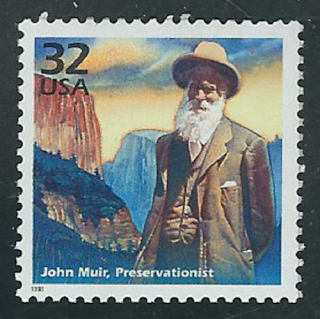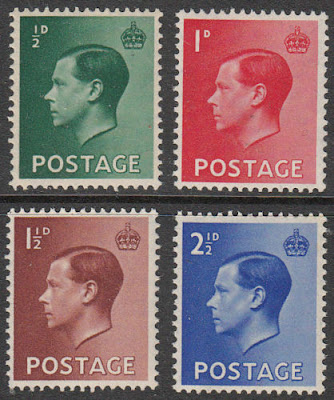Here are some events that happened on May 28th. It could be an event or a person that died or was born on that day
1892 – In San Francisco, John Muir organizes the Sierra Club.
John Muir (April 21, 1838 – December 24, 1914) also known as "John of the Mountains" and "Father of the National Parks", was an influential Scottish-American naturalist, author, environmental philosopher, botanist, zoologist, glaciologist, and early advocate for the preservation of wilderness in the United States of America.
His letters, essays, and books describing his adventures in nature, especially in the Sierra Nevada, have been read by millions. His activism helped to preserve the Yosemite Valley and Sequoia National Park, and his example has served as an inspiration for the preservation of many other wilderness areas. The Sierra Club, which he co-founded, is a prominent American conservation organization. In his later life, Muir devoted most of his time to the preservation of the Western forests. As part of the campaign to make Yosemite a national park, Muir published two landmark articles on wilderness preservation in The Century Magazine, "The Treasures of the Yosemite" and "Features of the Proposed Yosemite National Park"; this helped support the push for U.S. Congress to pass a bill in 1890 establishing Yosemite National Park. The spiritual quality and enthusiasm toward nature expressed in his writings has inspired readers, including presidents and congressmen, to take action to help preserve large nature areas.
John Muir has been considered "an inspiration to both Scots and Americans". Muir's biographer, Steven J. Holmes, believes that Muir has become "one of the patron saints of twentieth-century American environmental activity," both political and recreational. As a result, his writings are commonly discussed in books and journals, and he has often been quoted by nature photographers such as Ansel Adams. "Muir has profoundly shaped the very categories through which Americans understand and envision their relationships with the natural world," writes Holmes.
Muir was noted for being an ecological thinker, political spokesman, and religious prophet, whose writings became a personal guide into nature for many people, making his name "almost ubiquitous" in the modern environmental consciousness. According to author William Anderson, Muir exemplified "the archetype of our oneness with the earth", while biographer Donald Worster says he believed his mission was "saving the American soul from total surrender to materialism." On April 21, 2013, the first John Muir Day was celebrated in Scotland, which marked the 175th anniversary of his birth, paying homage to the conservationist.
US stamps depicting John Muir,
1936 – Alan Turing submits On Computable Numbers for publication.
Alan Mathison Turing (23 June 1912 – 7 June 1954) was an English mathematician, computer scientist, logician, cryptanalyst, philosopher, and theoretical biologist. Turing was highly influential in the development of theoretical computer science, providing a formalisation of the concepts of algorithm and computation with the Turing machine, which can be considered a model of a general-purpose computer. Turing is widely considered to be the father of theoretical computer science and artificial intelligence. Despite these accomplishments, he was not fully recognised in his home country during his lifetime, due to his homosexuality, and because much of his work was covered by the Official Secrets Act.
During the Second World War, Turing worked for the Government Code and Cypher School (GC&CS) at Bletchley Park, Britain's codebreaking centre that produced Ultra intelligence. For a time he led Hut 8, the section that was responsible for German naval cryptanalysis. Here, he devised a number of techniques for speeding the breaking of German ciphers, including improvements to the pre-war Polish bombe method, an electromechanical machine that could find settings for the Enigma machine.
Turing played a crucial role in cracking intercepted coded messages that enabled the Allies to defeat the Nazis in many crucial engagements, including the Battle of the Atlantic, and in so doing helped win the war. Due to the problems of counterfactual history, it is hard to estimate the precise effect Ultra intelligence had on the war, but at the upper end it has been estimated that this work shortened the war in Europe by more than two years and saved over 14 million lives.
After the war Turing worked at the National Physical Laboratory, where he designed the Automatic Computing Engine. The Automatic Computing Engine was one of the first designs for a stored-program computer. In 1948, Turing joined Max Newman's Computing Machine Laboratory, at the Victoria University of Manchester, where he helped develop the Manchester computers and became interested in mathematical biology. He wrote a paper on the chemical basis of morphogenesis and predicted oscillating chemical reactions such as the Belousov–Zhabotinsky reaction, first observed in the 1960s.
Turing was prosecuted in 1952 for homosexual acts; the Labouchere Amendment of 1885 had mandated that "gross indecency" was a criminal offence in the UK. He accepted chemical castration treatment, with DES, as an alternative to prison. Turing died in 1954, 16 days before his 42nd birthday, from cyanide poisoning. An inquest determined his death as a suicide, but it has been noted that the known evidence is also consistent with accidental poisoning.
In 2009, following an Internet campaign, British Prime Minister Gordon Brown made an official public apology on behalf of the British government for "the appalling way he was treated". Queen Elizabeth II granted Turing a posthumous pardon in 2013. The "Alan Turing law" is now an informal term for a 2017 law in the United Kingdom that retroactively pardoned men cautioned or convicted under historical legislation that outlawed homosexual acts.
Stamps issued by Great Britain commemorating Alan Turing
1972 Died: Edward VIII of the United Kingdom (b. 1894)
Edward VIII (Edward Albert Christian George Andrew Patrick David; 23 June 1894 – 28 May 1972) was King of the United Kingdom and the Dominions of the British Empire and Emperor of India from 20 January 1936 until his abdication in December of the same year.
Edward was born during the reign of his great-grandmother Queen Victoria as the eldest child of the Duke and Duchess of York, later King George V and Queen Mary. He was created Prince of Wales on his 16th birthday, seven weeks after his father succeeded as king. As a young man, Edward served in the British Army during the First World War and undertook several overseas tours on behalf of his father. While Prince of Wales, he engaged in a series of sexual affairs that worried both his father and then-British prime minister Stanley Baldwin.
Edward became king on his father's death. As king, he showed impatience with court protocol, and caused concern among politicians by his apparent disregard for established constitutional conventions. Only months into his reign, a constitutional crisis was caused by his proposal to marry Wallis Simpson, an American who had divorced her first husband and was seeking a divorce from her second. The prime ministers of the United Kingdom and the Dominions opposed the marriage, arguing a divorced woman with two living ex-husbands was politically and socially unacceptable as a prospective queen consort. Additionally, such a marriage would have conflicted with Edward's status as titular head of the Church of England, which, at the time, disapproved of remarriage after divorce if a former spouse was still alive. Edward knew the Baldwin government would resign if the marriage went ahead, which could have forced a general election and would have ruined his status as a politically neutral constitutional monarch. When it became apparent he could not marry Wallis and remain on the throne, he abdicated. He was succeeded by his younger brother, George VI. With a reign of 326 days, Edward is the shortest-reigning monarch of the United Kingdom.
After his abdication, Edward was created Duke of Windsor. He married Wallis in France on 3 June 1937, after her second divorce became final. Later that year, the couple toured Nazi Germany. During the Second World War, Edward was at first stationed with the British Military Mission to France, but after private accusations that he was a Nazi sympathizer, he was appointed Governor of the Bahamas. After the war, Edward spent the rest of his life in France. He and Wallis remained married until his death in 1972. Wallis died 14 years later.
Great Britain stamps depicting Edward VIII






No comments:
Post a Comment